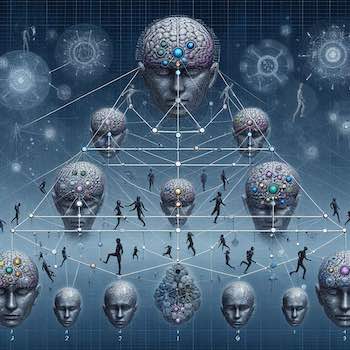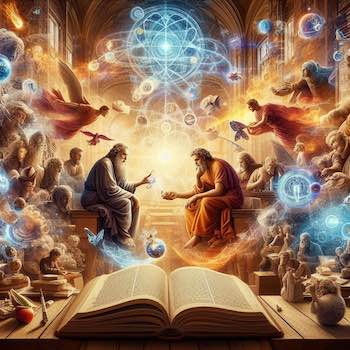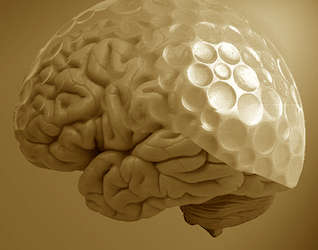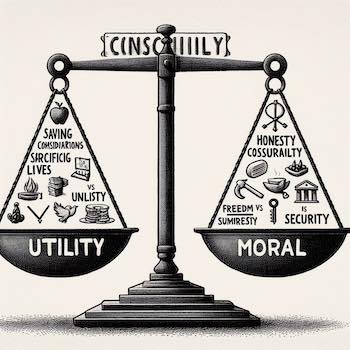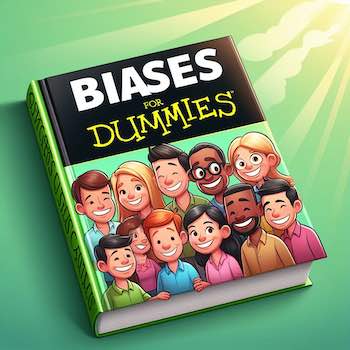Abstract : The 1st part of the article summarizes the theory of mind called Stratium, the only one to date to fully explain consciousness even in its phenomenal aspect. If you already know it, jump straight to the 2nd part, which explains the nature of the new mathematical proof fleshing out graph theory. The supposed regularity of phase transitions in very large graphs is confirmed and allows predictions about their behavior. Part 3 explains how Stratium is strengthened as a model of the mind by this evidence. Phase transitions are the potential support for the symbolic coding of information by neural groups, as well as its hierarchical nesting, from 1st rank neurons to the workspace of consciousness.
Month: June 2022
Meaning of life: Beware the knowledge-effect
This article is an application of the double look to the meaning of life. Read the dedicated article to introduce yourself to the roles of the downward and upward looks, duplication to resolve many contradictions by putting contradiction at the heart of the essence of things. Is pessimism perverse? Does life have any meaning? An … Read more
MORALITY summary
Our morality rests on intuition before the ideal. The little child is already building it without having received instructions on this subject. Advantage: every human owns her morality, adjusts it to hazards and personalizes it to her environment. Disadvantage: life in society imposes a difficult consensus with such a diversity of individual morals. Here appears … Read more
Can I freely put the ball in the hole?
Should I have or could I have? A golfer, his feet well camped on the green, tries to put his ball in the hole. He completely misses this putt, usually easy for a player of his level. Which brings us to the question of his free will. If he has one, was it on vacation … Read more
Moral (8): The Fundamental Flaw of Utilitarianism
Messianic collectivism Utilitarianism is a flawed philosophy, we have seen, since it can lead to the deliberate killing of innocent people, in defiance of a deontology more fundamental to the human being. But how is this possible, since it claims to represent the D of soliDarity, that is to say the interest of the greatest … Read more
Moral (7): Morally responsible?
Tumor passion Am I personally responsible for a morality that society would find inappropriate? This question, which attacks that of free will head-on, has no simple answer. Let’s look at the case of an American who, in 2000, suddenly became a sexual aggressor. Married and without history until then, he is unexpectedly passionate about prostitution, … Read more
Moral (6): Are biases stupid?
Scoop: an obese man killed by a philosophy teacher! The previous article drowned you in trolleyology. Philosophers study the moral value of our choices. Utilitarianism appears fundamentally flawed in terms of ethics. It calculates the formula of the maximum number of lives by mocking the destroyed units. It represents the pure D of the human … Read more
Moral (5): Trolleyology
One foot in the dilemma In the trolley problem, I explicitly take the utilitarian morality that prevails in the majority of responses on the wrong foot. I stage the companion of the man sacrificed to save 5 others. Whoever killed him must explain his action in front of her. The man was not destined to … Read more
In search of a fundamental moral principle
Let’s get on board the trolleyology with David Edmonds, author of Would you kill the Fat Man? He details variants of the trolley problem, its philosophical interpretations, and its connections with the neurosciences of morality. Appear choices made personally by the philosophers summoned but no normative theory. Is it a preserve that must continue to … Read more
Irresolution in full exhibition!
“I don’t want to destroy the planet but I don’t want to be penniless either.” “I don’t want to put others at risk but I don’t want to get vaccinated.” “I support Ukraine but it poses the threat of nuclear conflict.” What do these sentences have in common? All of them declare an insolvent conflict … Read more

